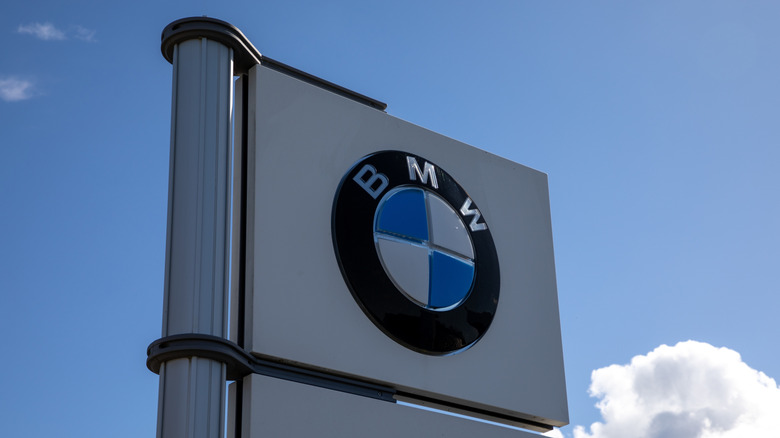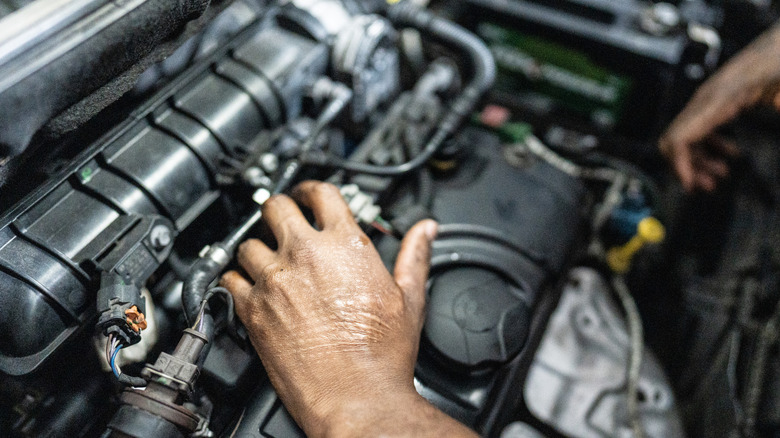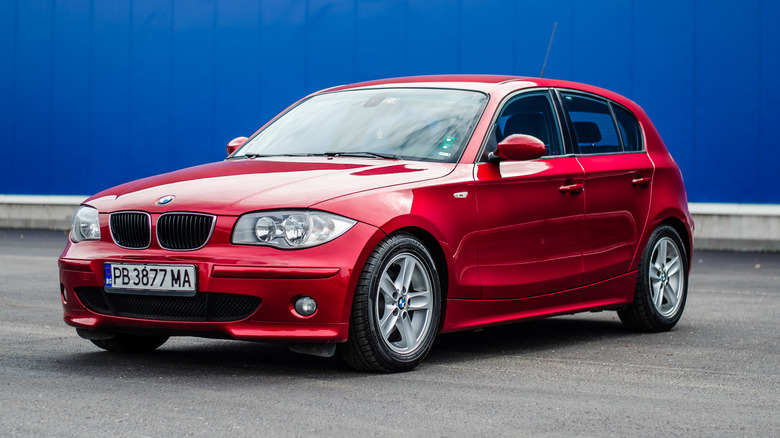This Is The Worst BMW Engine Ever Made
BMW is a German automaker responsible for crafting some of the most dynamic and internationally revered sports and performance cars the world has ever seen. Grab a handful of gearheads and ask them what their favorite cars are, it's almost guaranteed that at least one of them will pick an M-enhanced BMW model.
Part and parcel of building these iconic BMW cars, is, of course, developing awesome engines. Be it the intoxicating and high-revving S85 and S65 engines, which adorn the E60 M5 and E90 M3 respectively, or classic greats, such as the E30 M3's race-track-dominating S14 lump. In spite of the direction this article is about to take, BMW has gifted us with some legendary and powerful engines over the decades, and even if one or two poor designs have slipped through the quality control cracks throughout this time, it's important to not overlook the brand's greatest hits.
However wonderful those greatest hits may be, there are certain engines that drag BMW's otherwise shining reputation for engine development through the mud, and one sticks out like a sore thumb as the worst produced. I have worked in car sales and car preparation for a number of years, and it's true that many steer away from anything powered by BMW's troublesome N47 inline-four engine. Not only do customers steer away from N47-powered models, but so do dealers, as more often than not, they'll be back further down the line with a smattering of costly issues.
BMW's N47 engine suffers from timing chain failure
While the N47 isn't immune to other issues usually associated with BMW ownership, such as constant oil leaks, the main concern with this specific engine is timing chain failure. The chain begins to wear and stretch, which results in rough running, and in serious cases the chain can even snap and cause catastrophic engine failure. Fortunately, the chain does at least give owners a 'heads up' when trouble is afoot, usually with a rattling sound that emerges from the rear of the engine.
This highlights another weakness of the N47: The placement of the timing chain itself. BMW designed the N47 with the timing chain at the rear of the engine, which, of course, makes changing it an absolute nightmare, leading to bills so high you'll be wondering if your mechanic is ripping you off. BMW has updated the N47 engine, both in 2011, and between 2013 and 2015. While examples that pre-date this are still prone to timing chain failure, the latter years are much better, and generally speaking, a relatively safe bet.
The N47 suffers from other common problems
If you're an N47-powered BMW driver, and haven't suffered timing chain issues, then the chances are you've got a post-2011 model. There might even be some owners of early N47 models who haven't experienced timing chain problems, but they're in the minority, and should probably go out and get a lottery ticket.
You may be familiar with some of the other, less serious problems which affect these diesel engines though. As is fairly common with other BMW diesel engines, the N47 is affected by swirl flap and EGR problems, which can cause restricted performance, highlighted by the presence of an EML (Engine Management Light). Preventative measures –- such as the removal of these swirl flaps –- in addition to regular maintenance can help owners to avoid these issues, but with millions of owners and models affected by similar problems, it's almost a given that long-term N47 owners will come up against EGR or swirl flap problems at some point.


